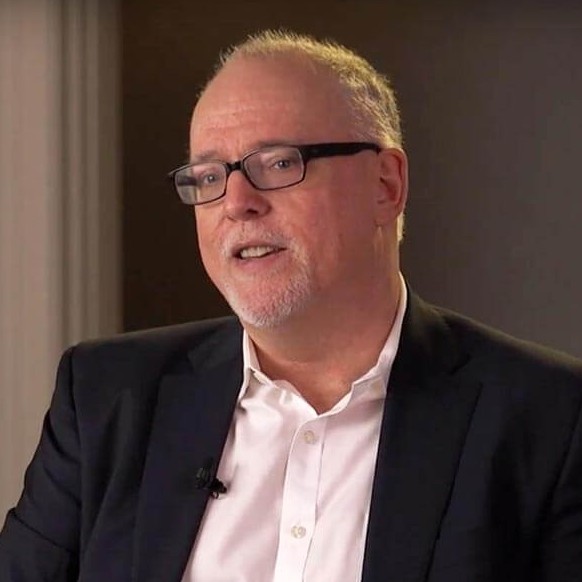Jeff Manza and the Trouble with Inequality

There is no debate that income inequality is growing in the United States, says New York University Professor of Sociology Jeff Manza. Yet in his November 20, 2019 talk, “The Trouble With Inequality,” hosted by the Institute for the Study of Societal Issues, the Goldman School of Public Policy, and the Center for Right-Wing Studies, Manza argued that Americans remain largely unresponsive to the prospect of policy changes that would redistribute income and wealth. Approaching economic inequality from a sociological perspective, Manza examined national survey responses to see if Americans are truly open to redistributive policies.
Manza began by outlining two reasons we should care about public opinion. First, changes in aggregate public opinion (such as the shift in attitudes towards same-sex marriage) can lead to policy change; and second, public opinon serves as a powerful constraint over policies, making it difficult to sustain policies in the face of strong public opposition. In fact, Manza emphasized that representative democracy itself is based on the principle of elected officials being responsive to public opinion. After all, in order for politicians to be reelected, they must respond to citizen input.
This emphasis on public opinion continues throughout other influential political economy theories. To further illuminate public opinion’s impact on political change, Manza introduced the foundational concept, the “Meltzer–Richard hypothesis.” Created by Allan Meltzer and Scott Richard in 1981, this economic hypothesis proposes that as the mean income diverges from the median, the median voter will eventually begin to demand public policies that will bend the distribution in a more egalitarian direction. It seems simple: as inequality rises, people will seek more policies that promote equality.
However, Manza demonstrated that this theory can get complicated in practice. Drawing on Martin Gilens’s Affluence and Influence, Manza pointed out that elite preferences (i.e., those of affluent citizens and powerful special interest groups) can carry more weight with elected officials. Therefore, elected officials are more responsive to “privileged actors.” Manza encouraged the audience to question how “rational” public responses really are. In an age of rising partisanship, public opinion is increasingly shaped by party allegiance. Thus, Manza proposed that it can be more beneficial to think about public opinion not as an aggregate, but instead as multiple publics, fractured by parties.
Manza demonstrated that although the “Meltzer-Richard hypothesis” may seem intuitive, it lacks empirical support. Moving from the perspective of political economy to that of sociology, Manza demonstrated that although Americans do tend to be broadly egalitarian, support for equality begins to dwindle when the question of government intervention is introduced. Manza pointed to two sociological thinkers, Leslie McCall and Spencer Piston, both of whom argue that Americans oppose inequality only when it is linked to a perceived “unfairness.” Despite advantages in background, when someone has garnered significant wealth by “playing by the rules,” there is little pushback.
To further analyze public opinion, Manza presented national survey data from the General Social Survey (GSS), the Gallup Poll, and the International Social Survey Program, the latter of which includes 60 questions on economic inequality. Respondents either agree or disagree with statements and questions, including: “Does the government have a responsibility for helping the poor?” and “Should people of high income pay a larger share of tax?” as well as, “The way things are in America, me and my family have a good chance of improving my standing.” After collecting and scaling these responses from 1987-2008, Manza determined that there was no significant change over time. In other words, American attitudes towards economic inequality, or at least policy responses to inequality, did not change significantly over these decades. Responses did vary with respect to factors such as household income and party affiliation, but there was little aggregate change. Data from 2012 onwards also indicated minimal change, despite the Occupy Wall Street movement and rising media attention on economic inequality.
Therefore, Manza argued that although economic equality has become a more prominent topic in both politics and media coverage, there has not been a corresponding shift in American attitudes. He pointed to a few factors that might contribute to this lack of responsiveness. First, he noted that the prospect of upward mobility is a barrier to increasing support for egalitarian policies. If someone believes that upward mobility is possible in their society, they become less supportive of redistributive measures because they believe that they can “get ahead” through hard work. He also mentioned that partisanship has had an increasing effect on public opinion, causing a wider split between Democratic and Republican responses to inequality. Most significantly, he suggested that this evidence shows that current egalitarian policy proposals may not be effective in persuading the general public.
Ultimately, Manza proposed that although the public is more aware of economic inequality than ever, egalitarian politics are increasingly afflicted by an inability to appeal to the general public. Most social scientists would imagine that traditional social democratic policies and programs might be the obvious way to address inequality. However, Manza pointed to the populist revival around the world in both left and right wing political spheres. “On that very troubling note,” he concluded, “is it possible that populists, including the current president, have a better way of mobilizing the dissatisfaction of rising inequality, low wages, and stagnation?” The jury is out.